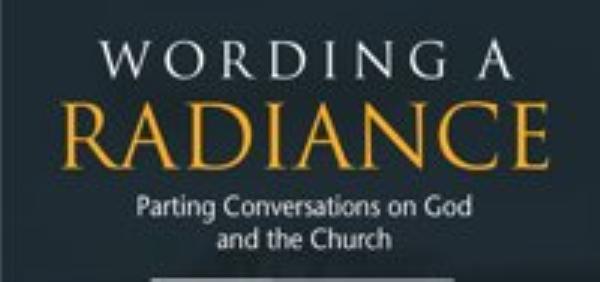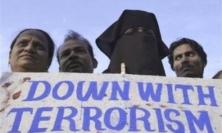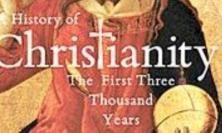Professor Daniel Hardy died on 15 November 2007, just six months after being diagnosed with an aggressive brain tumour. He was an extraordinary man – and this is an extraordinary book. A sort of theological memoir (if there is such a literary hybrid), it works on various levels: an intimate record of a spiritual journey; thought-provoking theology; an homage to a great teacher; the story of family and close friends facing the loss of someone deeply loved. What holds these levels together is a series of conversations which Hardy held during those last months. Deborah Hardy Ford introduces the book with a portrait of her father and concludes with ‘farewell discourses’ – his ‘parting theology’. She also presents Hardy’s own account of a pilgrimage to the Holy Land just weeks before the diagnosis, a journey of faith which forms the main narrative strand of the book. His son-in-law, David Ford, Regius Professor of Divinity at the University of Cambridge and Hardy’s closest collaborator, provides a commentary on ‘living theology in the face of death’. In summarising and explaining some of the more allusive of Hardy’s concepts, Ford shows how Hardy’s theology was, as he put it himself, being ‘rounded off somehow’. These chapters are personal and heartfelt, interspersed with scripturally based meditations; they are by turns poignant and joyful, witnessing to Hardy’s deep-felt conviction that, in these months especially, he was being drawn deeper into the radiance of God’s light.
It is in the central section, four brief chapters which sketch out an ‘ecclesiology of pilgrimage’, that Hardy’s distinctive theological voice is heard most clearly. Knowing that the book he was working on would never be finished, Hardy held regular telephone conversations with one of his closest friends and colleagues, Peter Ochs, a Jewish philosopher at the University of Virginia. Ochs made himself responsible for writing them up, using the experience of the Holy Land pilgrimage – from the bubbling headwaters of the Jordan to the dark tunnel under the city of Jerusalem – to illustrate the major themes which had most occupied Hardy all his life: God, Church and the Redemption of the world. This pilgrimage was no routine trip round the sacred sites; it’s a journey of personal transformation in which an old and familiar truth, the presence of the Incarnate Lord, explodes with a new and disarming freshness. Some of the material here is technical and difficult (and Ochs’ footnotes are often invaluable in sifting out the different levels of Hardy’s meaning). It is also shot through with Hardy’s occasionally idiosyncratic vocabulary, some of it with a venerable if obscure pedigree, some of it expressing new experiences and insights.
To read these pages is to be struck by the density of a divine encounter which is simple yet beautifully complex. Here is a professional communicator finding himself ‘abducted’, drawn in a way which he can no longer control to where God wants him to be. That word ‘abduction’ Hardy takes from Coleridge and it sums up a central element of his theology, or, more exactly, of his experience of Christian living. There are signs everywhere of a personal struggle, but also a lucidity which springs from the intensity of the moment. That his confidante and amanuensis should be Jewish and the focus of his reflection the Old City of Jerusalem seems entirely appropriate for a man for whom ecumenical, and latterly inter-faith, relations were so crucially important.
Intended as a final word from an important theological voice and set against the background of the inevitability of death, this is first and foremost the story of a life, and more profoundly a celebration of life itself. Hardy was born and brought up in the USA, but taught for many years at the University of Birmingham before becoming Van Mildert Professor at Durham and then moving to Princeton where he directed the ‘Center of Theological Inquiry’ for five years. When he retired to Cambridge in the mid-90s, he settled next door to his daughter and son-in-law, and became part of the network of theological hospitality which had formed around the Ford household. Reserved, often taciturn, he would listen carefully to the enthusiastic presentations of Ford’s graduate students; then, gently but firmly, put his finger on the precise point which had been glossed over or underplayed. Hardy made things happen. He had a special gift for collaboration and encouragement – especially when acting as a selfless godfather to other people’s publications. Whether beginning with scripture or music, science or interreligious relations, he was never happier than when sharing with friends, colleagues and students his extraordinary vision of a world constantly being taken into the very heart of God.
Not the least merit of this book is that it provides an accessible entry-point into the thought of one of the most influential exponents of Anglican ecclesiology in the last half century. But it’s a lot more than that. Written in the shadow of death, and recording difficult and conflicting emotions, this is a dialogue about hope and healing, about the light which shines in the darkness, about a people formed after the manner of the humble Christ who walks the land and becomes the measure of our participation in Godself. Key ideas – such as a definition of Church as ‘the formation of these people for other people’ – open up a rich and generous spirituality, an account of a Christian life courageously lived in the face of the most disarming mystery of the human condition. The title, taken from a poem by Micheal O’Siadhail, another much-loved friend, gets very close to describing what the poet and storyteller in Hardy knows he sometimes struggles to express. ‘Wording a Radiance’ speaks of God’s light shining in the heart of each and every person to draw out and build up that Goodness which is the best of us. Somewhere in the bubbling up of baptismal waters from the River Jordan, Hardy found new words to express the oldest of human mysteries: how in the approach of death comes a receptivity and acceptance which gently answers all our struggles to know and explain. We are drawn by powerful images into divine light. ‘In some amazing way’, says Hardy, ‘the two things coalesce, I don’t know how: being drawn into death is also being drawn into life’.
The reviewer, Michael Barnes SJ, lectures in the Theology of Religions at Heythrop College, University of London, and is Director of the De Nobili Dialogue Centre in Southall, west London. He is author ofTheology and the Dialogue of Religions(CUP, 2002).






